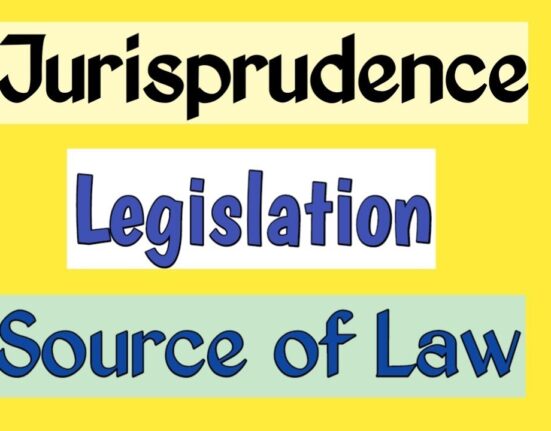The article “Delayed Cases in District Courts: Examining Causes and Solutions” is written by Tej Sandilya, a third-year student at Gautam Buddha University
INTRODUCTION
The effectiveness of a judicial system is essential to upholding justice and maintaining trust in the rule of law. Yet, the Indian district courts are struggling under an overwhelming backlog of cases, with more than 66 lakh cases delayed due to lawyers being unavailable. This issue, along with over 38 lakh cases stalled because the accused are absconding and delays involving witnesses and various procedural stays, paints a troubling picture of our legal system. These delays not only strain the courts but also impact individuals and society. In this essay, we will explore the root causes of these delays, understand their consequences, and consider potential solutions to help address this growing crisis.
CONTRIBUTING FACTORS TO CASE DELAYS
One of the primary reasons behind the delay of over 66 lakh cases is the unavailability of lawyers. Many lawyers are overwhelmed by their caseloads, trying to manage many instances across various courts. This excessive workload often results in delays as lawyers struggle to handle their responsibilities efficiently. In addition, there’s a significant shortage of lawyers in rural and less developed regions, where legal representation is already limited. This disparity in legal resources further exacerbates the problem, leaving many cases languishing without timely attention. Outdated administrative practices and slow adoption of digital tools also contribute to these delays, affecting how cases are managed and scheduled.
Another major issue is the problem of accused individuals absconding, which affects over 38 lakh cases. Law enforcement agencies often face challenges in tracking down and apprehending these individuals due to resource constraints and inefficiencies in their procedures. Legal loopholes also play a role, as the complex nature of dealing with absconding accused can prolong case resolutions. Socioeconomic factors, such as fear of severe penalties or financial pressures, often drive individuals to evade justice, highlighting the need for a more comprehensive approach that addresses legal and social aspects.
Witness-related delays are another significant concern, causing delays in approximately 2,920,033 cases. Witnesses may fail to appear in court due to personal issues, fear of retaliation, or reluctance to engage in lengthy legal processes. This lack of availability can stall proceedings and hinder justice. Moreover, inadequate witness protection can deter individuals from coming forward. Improving safety measures and support for witnesses is crucial to ensuring their participation. Administrative issues, like delays in issuing summons and coordinating witness appearances, also contribute to these delays.
The 2,462,051 cases that are stayed for various reasons reflect additional complexities within the judicial system. These delays can arise from ongoing legal disputes, procedural issues, or administrative inefficiencies. For example, appeals or injunctions can halt case progress, while slow processing of paperwork or scheduling issues can extend the time required to resolve cases. Complex cases, involving multiple legal issues or extensive investigations, also contribute to the backlog, as courts navigate through intricate details.
IMPACT OF DELAYED CASES
The impact of these delays is significant and far-reaching. Overburdened courts struggle to manage the sheer volume of cases, leading to inefficiencies and a lack of timely justice. This strain undermines public confidence in the legal system and erodes trust in its ability to deliver justice effectively.
For victims, delays can be deeply distressing. The prolonged wait for justice can exacerbate the trauma they have experienced, affecting their mental and emotional well-being. Similarly, accused individuals face extended periods of uncertainty and stigma, which can have adverse effects on their lives and livelihoods. The delays create additional personal and social costs, complicating the resolution of cases and further impacting everyone involved.
On a broader scale, delays in the judicial system can influence societal perceptions of the rule of law. When the justice system is seen as inefficient, it can diminish respect for legal institutions and reduce public confidence in their ability to uphold justice. Moreover, delays can undermine the deterrent effect of the legal system, potentially affecting crime rates and societal behaviour. Without prompt justice, the legal system may fail to serve as an effective deterrent, which can have long-term implications for societal order.
POTENTIAL SOLUTIONS
Addressing the backlog of cases requires a comprehensive and multi-faceted approach. Strengthening the legal infrastructure is vital. This includes modernising court systems through digital tools, improving case management processes, and enhancing administrative efficiency. Investing in these areas can streamline procedures and reduce delays. Additionally, increasing the number of judges and legal professionals, particularly in underserved areas, can help alleviate the workload and improve access to justice.
Enhancing law enforcement and investigative mechanisms is also crucial. Improving the efficiency of tracking and apprehending absconding accused requires better coordination among agencies and additional resources. Addressing legal loopholes and refining procedures for handling absconding individuals can help reduce delays. Tackling the root causes that lead to individuals evading justice, such as socioeconomic pressures, is also essential for a comprehensive solution.
Improving witness management is another key area. Implementing robust witness protection programs can encourage more individuals to participate in legal proceedings. Streamlining administrative processes related to summoning and managing witnesses can help prevent delays. Ensuring the safety and support of witnesses will aid in the swift resolution of cases and strengthen the overall integrity of the judicial process.
To address cases for various reasons, it is important to streamline legal procedures and reduce administrative delays. Expediting the resolution of legal disputes and procedural issues can prevent cases from stagnating. Simplifying complex cases and improving court efficiency in handling them can also help reduce the time required for resolution.
CONCLUSION
The backlog of delayed cases in Indian district courts, driven by issues such as the unavailability of lawyers, absconding accused, witness problems, and procedural stays, presents a significant challenge. These delays profoundly impact the justice system, individuals, and society. Addressing this crisis requires a multi-pronged approach, including strengthening legal infrastructure, enhancing law enforcement, improving witness management, and streamlining legal procedures. By implementing these solutions, we can work towards reducing delays, restoring public confidence in the judicial system, and ensuring that justice is delivered effectively and timely.
REFERENCE
https://www.barandbench.com/news/66-lakh-cases-district-courts-delayed-unavailability-lawyers







Leave feedback about this